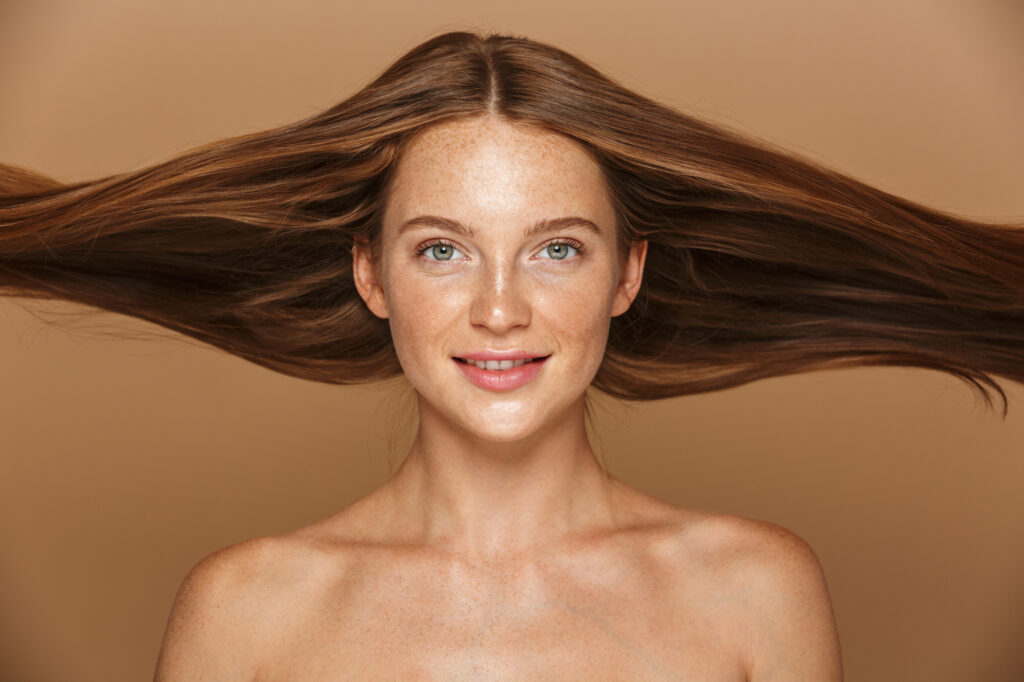Our hair is often considered our crowning glory, a symbol of beauty and health. However, hair loss is a common concern that can affect both men and women, and it can be caused by a variety of factors, including genetics, age, stress, and poor diet. While you may not be able to control your genetics, you can certainly influence your diet to promote hair health and prevent hair loss naturally. In this comprehensive guide, we’ll explore the connection between your diet and the health of your hair, and provide practical tips to help you maintain those luscious locks.
Understanding the Hair Growth Cycle
Before delving into dietary solutions for hair loss prevention, it’s important to understand the basics of the hair growth cycle. Hair goes through a continuous cycle of growth, rest, and shedding. Each hair strand on your scalp is at a different stage of this cycle. The stages include:
Anagen (Growth Phase): This is the active phase where hair is actively growing. On average, hair grows about half an inch per month.
Catagen (Transitional Phase): In this phase, hair stops growing and detaches from the hair follicle.
Telogen (Resting Phase): During the resting phase, hair is not actively growing, but it remains in place. Around 10-15% of your hair is in this phase at any given time.
Exogen (Shedding Phase): Hair naturally sheds during this phase, allowing new hair to grow in its place.
Proper nutrition can influence the duration of each phase and the overall health of your hair, so let’s explore the dietary steps you can take to maintain your mane.
Essential Nutrients for Hair Health
A well-balanced diet is essential for overall health, and it’s equally important for healthy hair. Your hair requires a variety of vitamins, minerals, and other nutrients to grow and stay strong. Here are some key nutrients and their roles in maintaining healthy hair:
Protein: Hair is primarily composed of a protein called keratin. A diet rich in protein sources like lean meat, fish, eggs, and plant-based options such as beans and nuts can promote hair growth.
Iron: Iron deficiency can lead to hair loss. Incorporate iron-rich foods like spinach, lentils, and red meat into your diet.
Omega-3 Fatty Acids: These healthy fats can help nourish the hair follicles and scalp. Sources include fatty fish like salmon, chia seeds, and flaxseeds.
Biotin: Also known as vitamin H, biotin is essential for hair growth. Foods like eggs, nuts, and sweet potatoes are excellent sources of biotin.
Vitamin A: Promotes the production of sebum, the natural hair conditioner. Carrots, sweet potatoes, and leafy greens are high in vitamin A.
Vitamin C: Enhances collagen production, which is important for hair structure. Citrus fruits, strawberries, and bell peppers are rich in vitamin C.
Vitamin D: This vitamin plays a role in hair follicle cycling. You can get vitamin D from sunlight exposure, fatty fish, and fortified dairy products.
Zinc: Supports hair growth and repair. Foods like oysters, beef, and pumpkin seeds are good sources of zinc.
Silica: A trace mineral that strengthens hair and prevents breakage. You can find silica in oats, cucumbers, and bell peppers.
Selenium: Promotes hair health and can be found in foods like brazil nuts, turkey, and whole wheat bread.
Collagen: A structural protein that supports hair health and can be obtained through bone broth, collagen supplements, and vitamin C-rich foods.
Foods for Healthy Hair
Now that you know which nutrients are essential for hair health, let’s explore some foods that can help you meet your dietary goals:
Salmon: Rich in omega-3 fatty acids and high-quality protein, salmon is an excellent choice for strong, shiny hair.
Spinach: Loaded with iron and vitamins A and C, spinach promotes healthy hair growth.
Eggs: A fantastic source of biotin and protein, eggs are a must for those seeking to prevent hair loss naturally.
Avocado: Packed with healthy fats and vitamin E, avocados nourish the scalp and hair.
Nuts and Seeds: Almonds, walnuts, and flaxseeds provide biotin, omega-3 fatty acids, and zinc.
Greek Yogurt: A great source of protein and vitamin B5, which supports blood flow to the scalp.
Berries: Blueberries, strawberries, and raspberries are rich in vitamin C, which boosts collagen production.
Sweet Potatoes: High in beta-carotene, sweet potatoes help your body produce vitamin A.
Beans: A source of protein, iron, and zinc, beans contribute to healthy hair.
Pumpkin: Pumpkin seeds are rich in zinc and are great for hair growth and strength.
Foods to Limit
While it’s essential to focus on the foods that promote hair health, it’s equally important to limit or avoid certain items that can negatively affect your hair:
Processed Foods: Foods high in sugar and unhealthy fats can lead to inflammation, which may harm hair follicles.
High-Sugar Diet: Excessive sugar consumption can lead to insulin resistance and hormonal imbalances, potentially causing hair loss.
Alcohol: Excessive alcohol consumption can dehydrate your body and hinder nutrient absorption, affecting your hair.
Caffeine: Overconsumption of caffeine can lead to dehydration, which can weaken hair.
Saturated and Trans Fats: These fats can lead to inflammation and harm the overall health of your hair.
Hydration and Hair Health
In addition to a balanced diet, proper hydration is essential for healthy hair. Water helps transport essential nutrients to your hair follicles and keeps your scalp hydrated. Aim to drink at least 8 glasses of water per day, and more if you engage in vigorous physical activity or live in a hot climate.
Conclusion
Your diet plays a crucial role in maintaining your hair’s health and preventing hair loss naturally. By including a variety of nutrient-rich foods and avoiding those that can harm your hair, you can support your locks from the inside out. Remember that results won’t be immediate, as hair growth is a slow process, but over time, the positive effects of a proper diet will become evident in your luscious, strong, and vibrant hair. So, nourish your body with the right nutrients, stay hydrated, and enjoy the benefits of healthy, beautiful hair.

